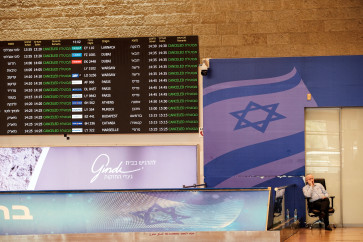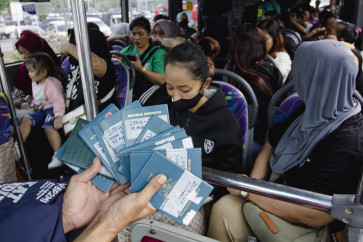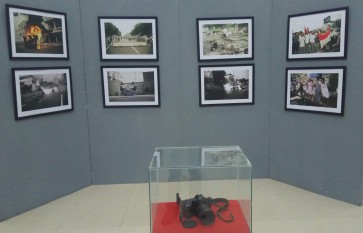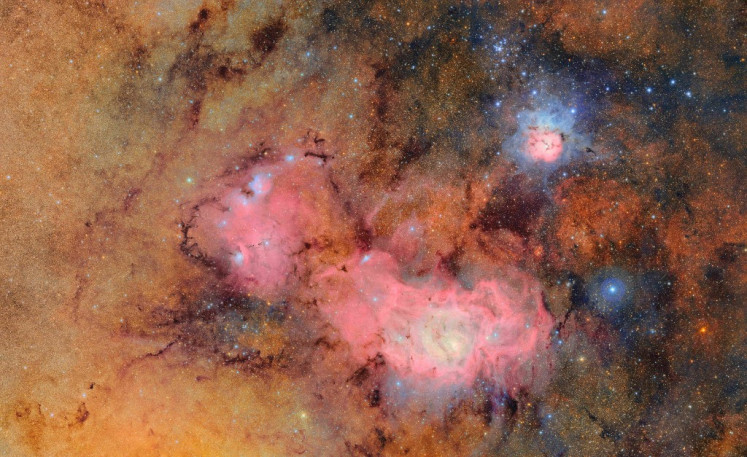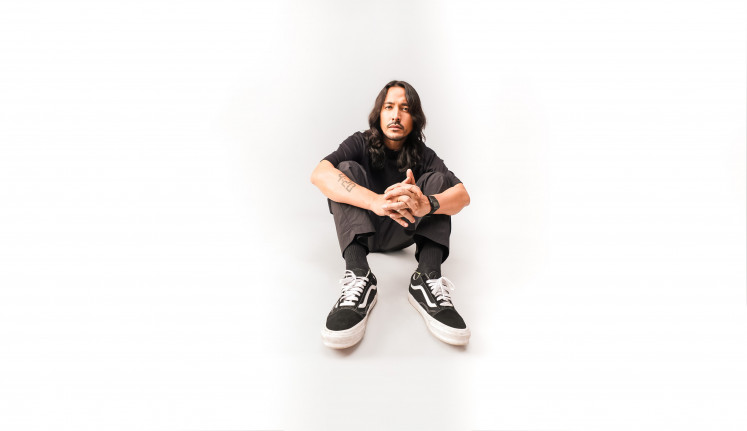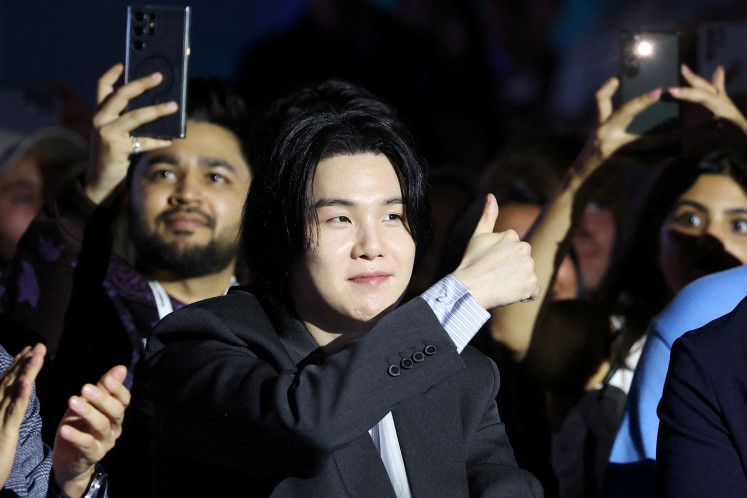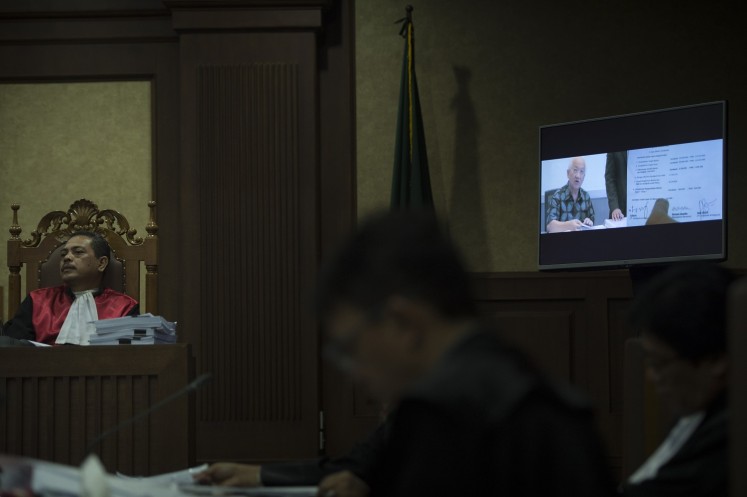Popular Reads
Top Results
Can't find what you're looking for?
View all search resultsPopular Reads
Top Results
Can't find what you're looking for?
View all search resultsJohn Cho is the No. 1 Asian-American actor in Hollywood
Look up John Cho on the web, and you’ll learn that he’s had a prolific career playing the token Asian in dozens of TV shows, Harold in the popular Harold & Kumar franchise and of course Sulu, his recurring role in the Star Trek reboot. But no mention of his best performance, and his best film, Columbus.
Change text size
Gift Premium Articles
to Anyone
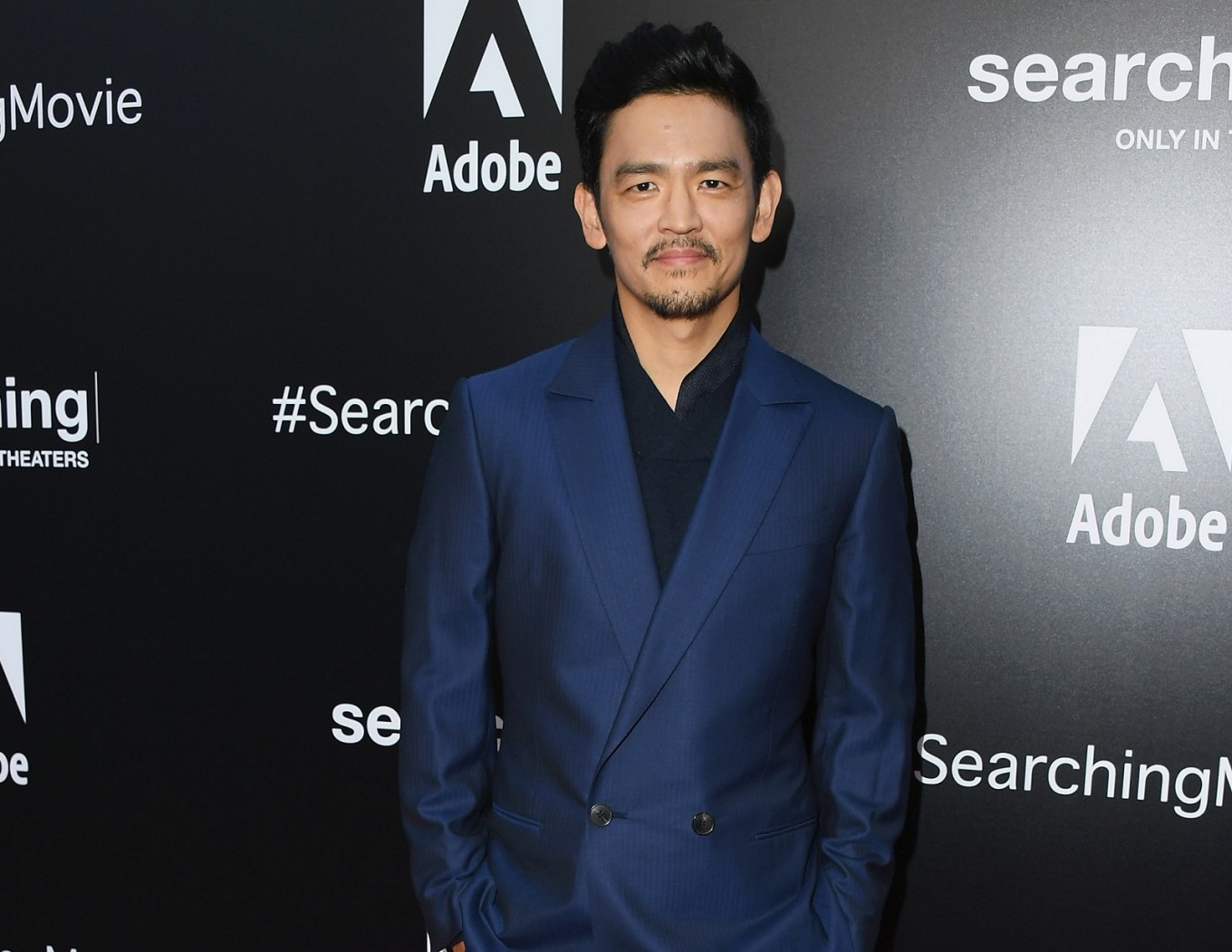 John Cho attends the screening of Stage 6 Films' 'Searching' at ArcLight Hollywood on August 20, 2018 in Hollywood, California. (AFP/Jon Kopaloff)
John Cho attends the screening of Stage 6 Films' 'Searching' at ArcLight Hollywood on August 20, 2018 in Hollywood, California. (AFP/Jon Kopaloff)
L
ook up John Cho on the web, and you’ll learn that he’s had a prolific career playing the token Asian in dozens of TV shows, Harold in the popular Harold & Kumar franchise and of course Sulu, his recurring role in the Star Trek reboot.
But no mention of his best performance, and his best film, Columbus.
As one of the few people who saw that film, I asked him about it at his press conference for Searching, his first starring role in a mainstream movie.
“I am so thankful you saw that movie, and I am so proud of that film,” he replied.
Are you and the director planning to work together again?
“(Korean born) Kogonada hasn’t made another film yet, but he is working on a couple of projects. And, in fact, I saw him a few days ago in New York. We fully intend on making another film together, and I look forward to it so much. Our problem is that we have too many ideas, too many things we want to do,” Cho said.
Searching is a commercial thriller and is getting strong reviews. Cho stars as a father whose teenage daughter has gone missing.
Of his performance in the film The Los Angeles Times wrote: “He runs the gamut of fatherly emotions like a pro, escalating from mild panic to violent outrage, but the key to Cho’s charisma is that he can just sit there and still hold your attention. He may just be a guy in a plaid shirt but that doesn’t make him any less of a movie star.”
Now Cho is being called the No. 1 Asian-American actor.
Are you prepared to accept that title?
If that’s the title, I’m happy to accept it, but my goal is not for just one person to carry that mantle.
I’m hopeful we’re on the cusp of seeing a lot more Asian Americans breaking through.
Read also: After 'Crazy Rich Asians,' 'Searching' breaks more new ground
Has there been a reluctance on the part of Hollywood to cast Asian actors?
Absolutely. People think, “Oh I don’t know if the audience would buy so and so in this role because it hasn’t been done,” and frankly I think that is incorrect thinking.
I think we vastly underestimate the American public and the worldwide public. Audiences are OK with it, and they don’t think about it that much. It’s the people who invest money who are worried and don’t like to sway from patterns that have proven in the past.
When I did the Harold & Kumar films, what set us apart was the goodwill that people had, seeing the Korean guy and the Indian guy. And it carried us through three films.
And to this day, the thing that I get called on the street most is Harold, and that’s because people have an affection for the casting of that movie.
I understand you were reluctant to take on this role (in Searching.) Why?
As much as I was intrigued by the script and the story – it had the hallmarks of a classic thriller – but why (are all the scenes) on screens? (The entire film is told through websites, social media, smartphones and computer screens.)
(Director) Aneesh (Chaganty) wouldn’t take no for an answer, and I am so glad he didn’t.
We met in person, and he said, “Let me change your mind.” He brought his laptop, he showed me how he was going to make this a cinematic experience.
You look too young to play a father to a teenage daughter, but you’re actually 46. And you have two young children?
My son is 10 and my daughter is five. Already, it feels like my son is separating himself from me in particular, not so much his mother; so I can sort of see the teenage years coming. He’s already starting to be like, “Yeah, you don’t know,” and that attitude is already starting.
But the thing that really allows me to connect with my character is not that my children are individuating themselves from me, it’s that we still think of them as babies, which is the thing that all parents do.
My mother thinks I am her five-year-old and will forever see me that way and will forever be protective.
Growing up in ultra conservative Glendale, California, did you experience discrimination?
Not so much discrimination, more isolation. We moved around a lot when I was a kid, and I felt alone, and I felt like I was the only Asian kid in class.
So, I actually turned to my computer to find peers that I couldn’t find in the classroom or in the neighborhood.
Read also: 'Asian August' comes to Hollywood, but will it last?
So what does it say about education which fails to help kids adjust to new surroundings?
For me, when I was a kid, art was my connection when I felt lonely, and books.
In my house, I read the Little House On The Prairie books to my kids because I had a connection with them when I was a kid.
I somehow felt that we were a pioneer family in our covered wagon from Korea to America (Cho and his family moved to the United States when he was six), and I always felt this kinship with the Ingalls family.
So it’s fun reading those books to my family. Art makes you feel like you are connected to people. Drawing also made me feel less lonesome and that was my way out.
You got a degree in literature at Berkeley. Did it help you as an actor?
I think the way that studying literature affected and helped me the most was – and this may sound dumb – that it made me a good reader.
It’s so important to read a document like a script to get the tone and the nuance.
And to this day, the most important moment that I have in preparation is the alone time I have, reading a script for the first time.
And during those early reads, I close the door, turn off the phone, and read it uninterrupted and try to really soak it in and imagine what the movie should be in my head.
And those impressions, the uninterrupted read is like reading a book, and that’s what I keep going back to when I am on set.
It’s hard when you are working scene by scene and shot by shot – much of it out of sequence – to remember what it’s supposed to feel like.
But that first read is what I keep going back to, and it works.
This article appeared on The Star newspaper website, which is a member of Asia News Network and a media partner of The Jakarta Post

